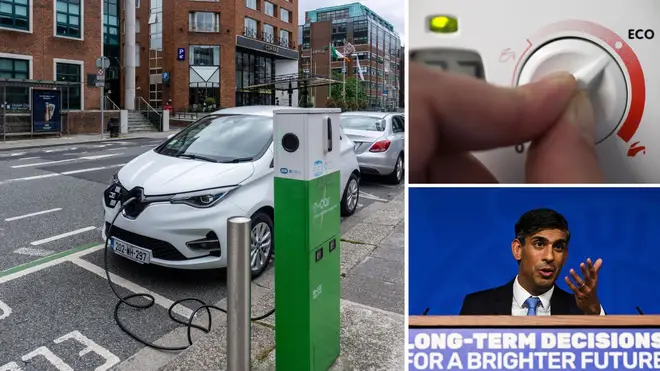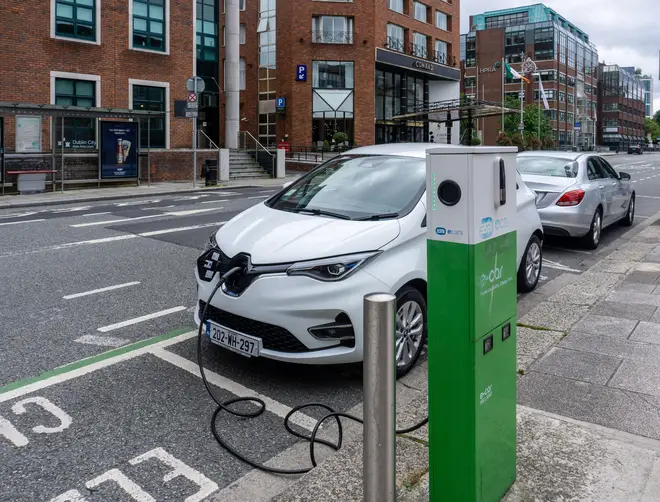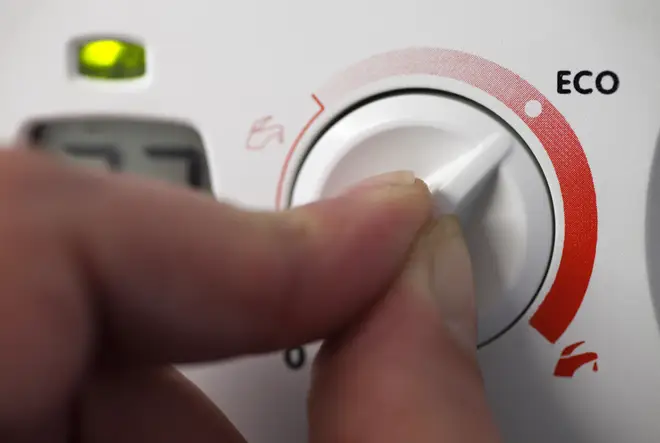
Paul Brand 10am - 12pm
21 September 2023, 01:20 | Updated: 21 September 2023, 08:58

The prime minister announced a delay to some of the government’s key climate pledges on Wednesday - but what will it mean for you?
Rishi Sunak confirmed on Wednesday he will delay the ban on the sale of new petrol and diesel cars until 2035 as he watered down a string of flagship environmental measures that sparked a huge Tory row.
As well as pushing back the ban on petrol and diesel cars in Wednesday's announcement, Mr Sunak also said he will give people “far more time” to change over to heat pumps in their homes.
The original climate promises included a ban on new gas boilers after 2025 and the purchase of new petrol and diesel vehicles from 2030. These have both now been delayed until 2035.
Here’s everything you need to know about how the government’s climate promises have been watered down and how it will affect you.
The ban on new petrol and diesel cars was first introduced by Boris Johnson when he was still prime minister in 2020, as he set the deadline for the ban as 2030.
This has now been pushed back to 2035, as Mr Sunak said he wanted to protect families from “unacceptable costs”.
While the prime minister has faced backlash from the motoring industry over the new 2035 date, figures suggest the delay is unlikely to have an significant affect on drivers.
Petrol and diesel cars remain in the majority of road vehicles but plug-in and battery electric vehicles are on the rise.
In 2023, more electric vehicles were registered than diesel ones for the first time in the UK.
Despite the rise in electric vehicles, the delay is unlikely to have a material impact on the drivers themselves.
Even when the ban takes affect, it will only prohibit the sale of new petrol and diesel vehicles. The RAC said this means “a lot of people won't be affected as the majority tend to buy used vehicles".

The ban on new gas boilers has been pushed back 10 years until 2035.
People who already have gas boilers in their home will not be affected by the delay, as the ban was only planned to affect the installation of new boilers in homes.
Mr Sunak also announced that former plans to see all new heating systems to be low carbon by 2035 have been scrapped - which originally was set to offer £450m worth of household grants.
While Brits with gas boilers won’t be affected specifically by this reversal, it does mean they will have gas boilers in homes for longer and therefore have to pay more for their bills due to the general increase in bills amid the cost of living crisis.
In his speech, the prime minister did announce a 50% increase in the boiler upgrade scheme, which gives those who want to upgrade their boilers to heat pumps a grant of £7,500 to assist the costs. He said the increase was a “no strings attached” change.
